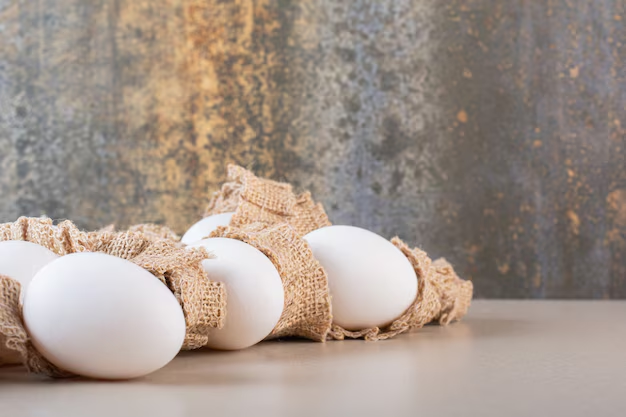Should You Refrigerate Farm Fresh Eggs? Guidelines for Proper Storage
Is there anything more delightful than enjoying the wholesome simplicity of farm-fresh eggs? For those fortunate enough to have access to them, a common question often arises: Should you put farm fresh eggs in the refrigerator? This query, while simple, opens the door to a host of considerations about egg storage, freshness, and safety, which we'll explore thoroughly to help you make the best decision for your eggs and your household.
🥚 Understanding Farm Fresh Eggs vs. Store-Bought Eggs
Before delving into refrigeration specifics, let's distinguish between farm fresh eggs and typical store-bought eggs.
Farm Fresh Eggs
These are eggs that come straight from the farm, often collected from free-range or backyard chickens. They are usually unwashed, preserving their natural protective coating, known as the cuticle or bloom. This coating helps guard against bacteria and helps maintain their freshness.
Store-Bought Eggs
Commercially sold eggs in many countries are washed and sanitized, which removes the protective cuticle. Because of this, refrigeration is necessary to prevent bacterial contamination and maintain safety standards.
🧊 The Debate: To Refrigerate or Not?
Whether to refrigerate farm fresh eggs can depend on a few key factors, such as personal preference, climate, and how quickly the eggs will be consumed.
Natural Preservation
The natural cuticle on fresh eggs provides some protection against bacteria. In many parts of the world, such as Europe, eggs are commonly stored at room temperature and consumed quickly enough that refrigeration is often deemed unnecessary.
Climate Considerations
In warmer climates or during the hot months of the year, refrigeration can help prevent the eggs from spoiling. Higher temperatures can accelerate the growth of bacteria and degrade the quality of the eggs more quickly.
When to Refrigerate
- Extended Storage: If you don't plan to use your eggs within a week or two, refrigeration can help extend their lifespan.
- Compromised Cuticle: If the eggs are washed or have visible dirt or manure, the protective cuticle may be compromised, making refrigeration a safer choice.
- Personal Preferences: Refrigeration can help maintain a consistent texture and flavor for those who prefer their eggs a particular way.
📝 Practical Storage Tips for Farm Fresh Eggs
How you store your farm fresh eggs can impact their freshness and safety. Consider these practical tips:
- Leave Unwashed: Keep eggs unwashed until just before use to preserve the bloom.
- Cool, Stable Environment: If not refrigerated, store eggs in a cool, stable environment, away from direct sunlight.
- Pointed Side Down: Store eggs pointed side down to help maintain the yolk's position and quality.
- Date and Rotate: For best results, date your eggs and use them in the order they were collected.
🚨 Addressing Safety Concerns
Safety is paramount when dealing with any kind of food storage. Let's explore some considerations:
Salmonella Risks
While rare, there's always a risk of salmonella present in eggs. In regions where salmonella is a known issue, taking precautions, such as refrigeration and cooking eggs thoroughly, is advisable.
Shelf Life
Refrigeration extends the shelf life of eggs significantly. Farm fresh eggs can last about three to five weeks refrigerated, compared to one to three weeks at room temperature, depending on the environment.
Visual and Smell Tests
Always inspect eggs before using them. Discard any with cracks, unusual spots, or a bad odor. When in doubt, perform the float test: immerse the egg in water, and if it floats, it's best not to consume it.
Float Test
The float test is a reliable way to gauge egg freshness: fill a bowl with water and gently place the egg in it. Fresh eggs sink and lay flat; eggs that tilt upward or float should be inspected further.
🛠️ Related Considerations and Subtopics
To further enrich your understanding, let's explore other related topics that may impact your storage choice.
Impact on Baking and Cooking
The state of your eggs can subtly influence your culinary creations. For baking, some recipes may be more forgiving with room temperature eggs that yield fluffier textures. Conversely, chilled eggs are easier to separate for recipes calling for yolks or whites specifically.
Global Practices
Looking at how people around the world store eggs can offer interesting insights. In many European countries, eggs are often sold unrefrigerated and stored similarly at home, while American practices lean heavily on refrigeration.
Consumer Trends
Interest in local and sustainable foods, such as farm fresh eggs, is on the rise. Understanding optimal egg storage can contribute to reduced food waste and support sustainable practices.
📋 Summary of Key Takeaways
To help consolidate the information, here's a handy summary:
- 🌡️ Unrefrigerated: Safe if the cuticle is intact and the eggs are used promptly. Ideal in cooler climates.
- 🧊 Refrigerated: Essential for washed eggs, longer storage, or warmer climates. Enhances shelf life and safety.
- 🗓️ Date and Rotate: Keep track of egg collection dates for optimal freshness.
- 🛡️ Natural Cuticle: Preserve the bloom by not washing until you're ready to use the eggs.
- ⚖️ Float Test: Use the float test to check the freshness of questionable eggs.
By considering these insights and tips, you can make informed decisions about the best way to store your farm fresh eggs, balancing safety, nutrition, and personal preference. Remember, your approach may vary based on where you live, the time of year, and how you plan to use your eggs. By being attentive to these factors, you can enjoy the delightful taste and quality that farm fresh eggs offer.

